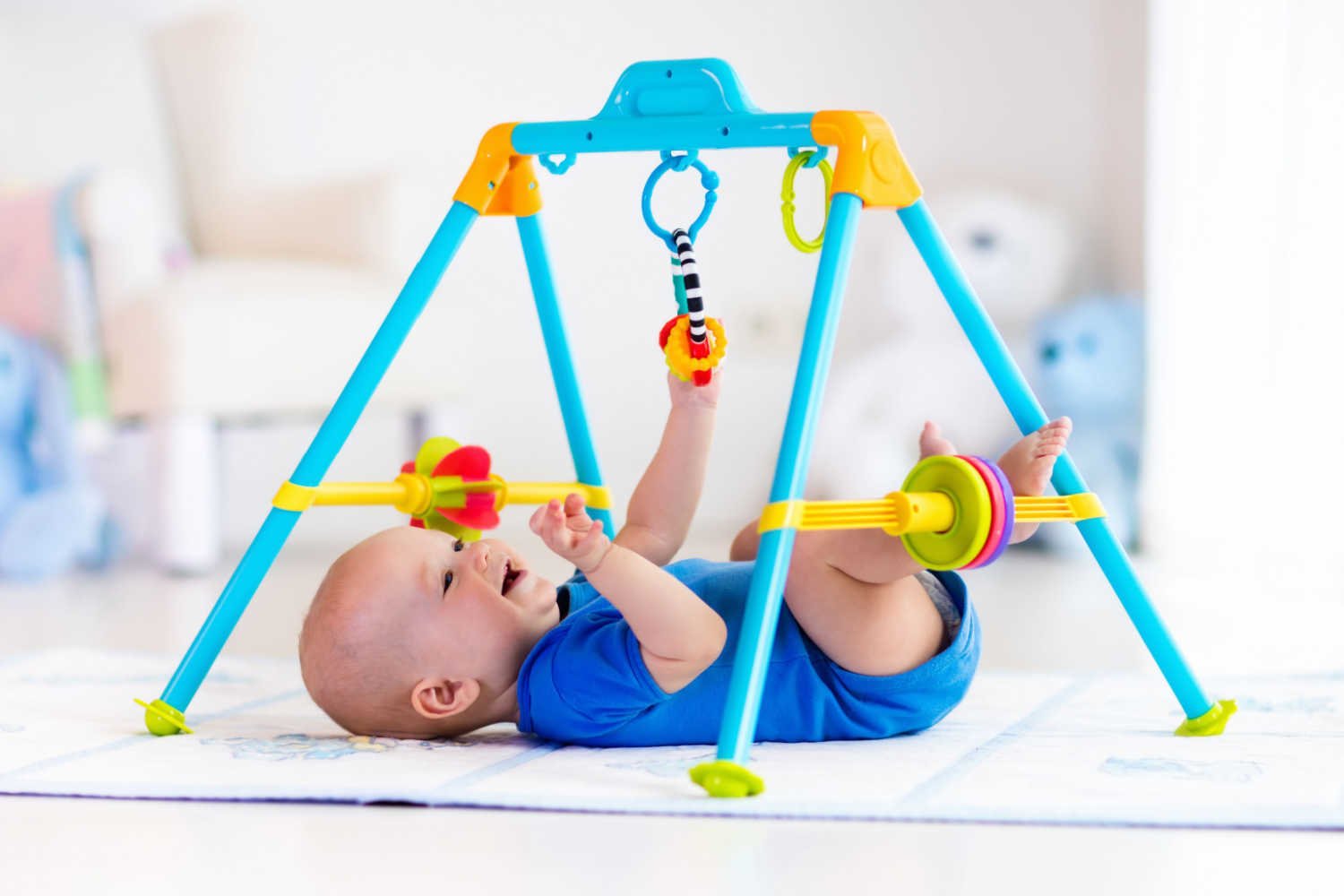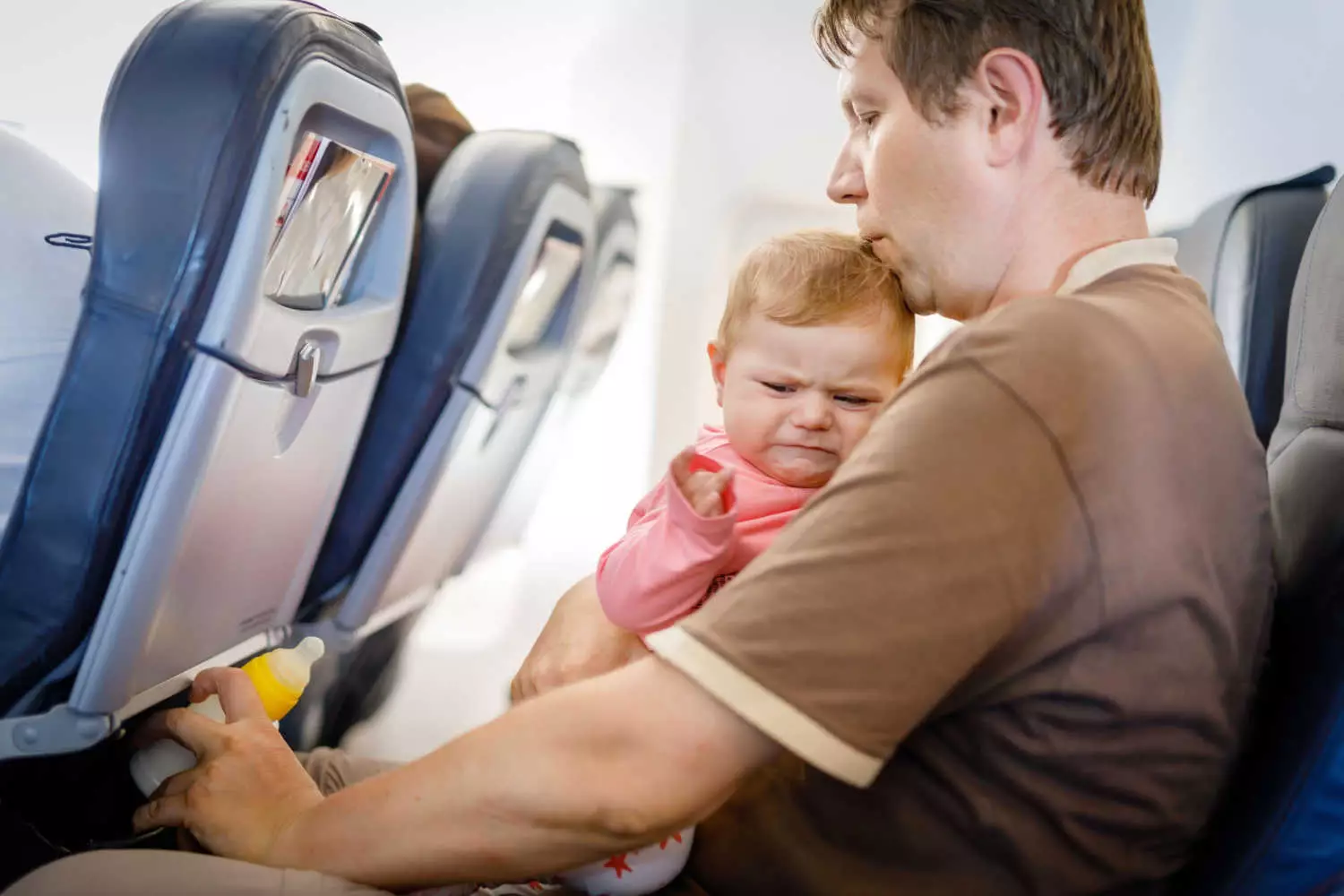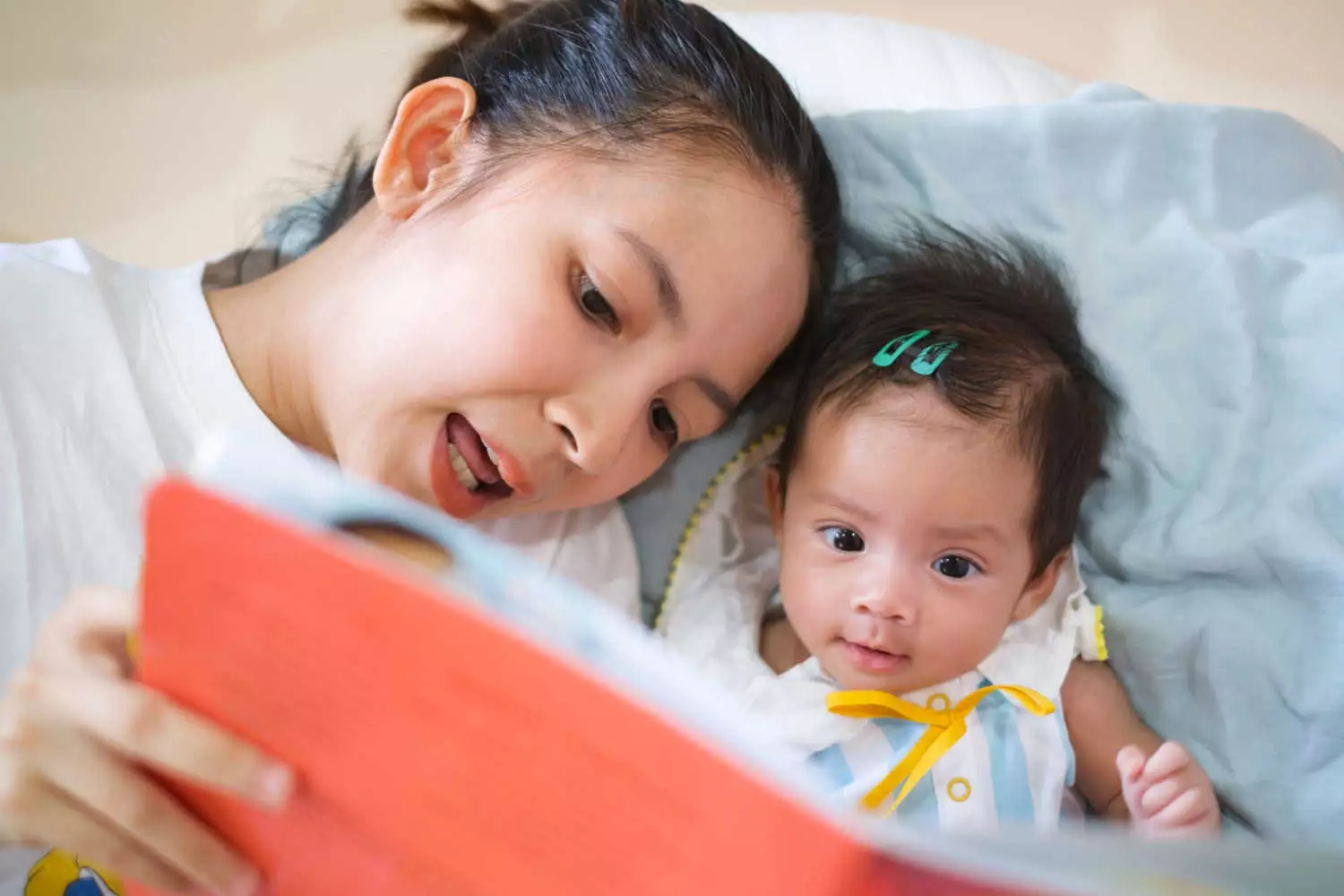
Sleep Apnea in Babies: Causes, Symptoms and Treatment by Dr. Srikanta J T
6 min readWritten by Editorial Team


The magic of getting a newborn in hand is just beyond words. Everything seems so new and strange in the first few months. But then, sometimes, a few mothers start facing issues with the sleep pattern of the babies. It is important to understand sleep apnea in babies. Few babies sleep for a long time while there are others who are disturbed with their sleep.
This disturbance during sleep can be due to sleep-related breathing disorders in babies. It is not as simple as it sounds. If not discovered in time, it can cause various complications. A partial reduction in breathing that occurs during an infant’s sleep is called ‘hypopnea’. On the other hand, complete pauses in breathing are called “apneas”. In this article, we will speak about the symptoms, causes, and treatments.
In This Article
- What is Sleep Apnea in Babies?
- What are the Types of Sleep Apnea in Babies?
- How Frequently is Sleep Apnea Found in Babies?
- What Causes Sleep Apnea?
- What are the Risk Factors for Sleep Apnea?
- Symptoms of Sleep Apnea In Babies
- How is Sleep Apnea Diagnosed?
- How is Sleep Apnea Treated?
- Are there Complications of Sleep Apnea?
- What Should You do if a Baby with Sleep Apnea Stops Breathing?
- How to Prevent Sleep Apnea in Babies?
- FAQ’s
What is Sleep Apnea in Babies?
Sleep apnea is a potentially dangerous breathing disorder observed in babies while they sleep. In this condition, the baby will experience a repeated interruption in their breathing. Generally, it is observed that this frequency of reduction increases during rapid eye movement.
What are the Types of Sleep Apnea in Babies?
Depending on the cause, sleep apnea in babies is categorized into three types:
1. Obstructive Sleep Apnea (OSA)
Obstructive apneas happen due to a blockage in the upper airway. This happens when the soft tissue at the backside of the throat caves in and blocks the airway during sleep. This type of sleep apnea is rare in healthy babies. It is commonly found in preterm babies.
2. Central Sleep Apnea (CSA)
Central sleep apnea happens when the baby’s body reduces or stops its effort to breathe as the brain fails to signal the related muscles to breathe. This happens due to some issues in the brain or in the heart. It is most commonly contracted by children older than one year.
3. Mixed Apnea
As the name implies, this is a combination of OSA and CSA. In this type, central apnea will be followed by obstructive apnea. Premature babies can contract this type of apnea.
How Frequently is Sleep Apnea Found in Babies?
Sleep apnea is not a rare issue among premature babies and that too, who weigh less than 2.2 pounds. Preterm infants are more likely to suffer from this issue when compared to full-term infants and those who are under six months of age. Sleep apnea is called ‘apnea of prematurity in babies born before 37 weeks of pregnancy. While babies born at 37 weeks and after will have the ‘apnea of infancy.
What Causes Sleep Apnea?

Infant sleep apnea can happen due to two reasons:
1. It happens as a consequence of a developmental issue from an immature brainstem.
2. It also can happen as a consequence of an underlying medical condition. Such as,
- Birth Defects
- Some Respiratory Ailments
- Some issues with Blood Vessels
- Wrong calcium or glucose level
- A Side Effect of some Drugs
- Exposure to Harmful Chemicals
- Metabolic Disorder
- Gastrointestinal issues like Acid Reflux
- Cardiac issues
- Neurological issues
[Read: Coping with Birth Defects]
What are the Risk Factors for Sleep Apnea?
Some risk factors increase the chances of sleep apnea in babies:
1. Hereditary Factor
Your child can contract it through genes. If there is another member of your family experiencing this condition, your child has more chance of contracting it.
2. High Birth Weight
Overweight babies pose a higher risk of contracting sleep apnea.
3. Inborn Physical Defects
Birth defects in the baby’s face, neck, and parts of the mouth can increase the risk of sleep apnea. Likewise, inborn genetic issues (like Down’s syndrome) can also increase the risk of sleep apnea in babies.
4. Preterm Delivery
It is found that a large number of preterm babies suffer from sleep apnea due to their underdeveloped respiratory systems.
[Read : 10 Questions Parents Of Every Premature Baby Ask- And Answers]
Symptoms of Sleep Apnea in Babies
The main symptom is an irregularity in breathing patterns. Some babies with sleep apnea tend to stop breathing for 20 seconds or longer during sleep. Obviously, their heart rate also slows down incredibly.
Other symptoms of sleep apnea include wetting the bed, a comparatively slow growth rate, and morning headaches. While there are a few kids who are hyperactive and aggressive for no reason, these symptoms vary from one infant to another.
Having sleepiness in the daytime is a problem for some, and for others, it could be even sweating during sleep. They snore because they have trouble breathing. You can even observe a few infants who sleep with their necks extended.
How is Sleep Apnea Diagnosed?
The doctors will be doing a Polysomnogram and other physical tests besides going through the entire medical history of the infant. Depending on the condition of the baby, a number of tests like oximetry and electrocardiogram will be done.
How is Sleep Apnea Treated?
With the advanced treatments in the medical field, there are multiple treatment options, depending on the condition and severity of the problem with the child. It is important to treat the underlying issue that causes sleep apnea in your child.
- This treatment of a few of them may include medication that involves steroids.
- It also includes the removal of tonsils and adenoids.
- The other options include positive airway pressure therapy and using oral appliances, which enhance smooth airflow.
- However, more often, only short-term treatment will be required as the infant’s sleep apnea will disappear as the child grows up.
Are there Complications of Sleep Apnea?
The complications include obesity, an enhanced risk of heart stroke, and problems with blood circulation. There are even cases where the issue is with the cardiovascular systems. When you witness the symptoms, consult a doctor immediately, otherwise, there will be a strain on the heart of the baby.
What Should You do if a Baby with Sleep Apnea Stops Breathing?
 You will be suggested to use the positive airway pressure machine, as suggested by the doctor. This will keep the airway open, and the baby will start feeling better soon after.
You will be suggested to use the positive airway pressure machine, as suggested by the doctor. This will keep the airway open, and the baby will start feeling better soon after.
Note: It is very important to learn how to perform infant CPR for the parents of babies with sleep apnea. In case the baby lies unresponsive, administer it until medical help arrives.
[Read : CPR in Babies: Steps And Precautions]
How to Prevent Sleep Apnea in Babies?
Early diagnosis is the best way to prevent complications of sleep apnea in babies. When you consult the right pediatrician, they will suggest tests that help them to understand the condition of the baby and the treatment to provide.
First and foremost, the parents need to stop worrying about themselves as proper treatment can help the baby. The most important part here is to understand that your baby is facing sleep issues and initiate the treatment procedure. Use preventative measures, stay prepared with the medicines the doctor prescribes and take immediate action to ensure the baby remains healthy.
FAQ’s
1. Will my Child Have Sleep Apnea if Someone in the Family Has It?
Sleep apnea can be hereditary. This doesn’t mean your child will “definitely” have it. But if someone in the family has it, your child may have it.
2. Is Sleep Apnea Purely Genetic?
No, it is not. Though sleep apnea can run in a family, it is not purely genetic. Your baby could be the first in the family to suffer from this condition.
3. How Can I Find Out if My Baby Has Sleep Apnea?
Babies stop breathing for a few seconds. If you suspect your child is not breathing for a few seconds at a stretch, when they are asleep, please share the concern with your doctor. They will be able to diagnose with additional tests.
4. Will Sleep Apnea Go Away on Its Own?
As the baby grows, the airways get bigger. Many children outgrow this disorder as airways get bigger. Sometimes there will be a need for external intervention.
Read Also:

Editorial Team,
With a rich experience in pregnancy and parenting, our team of experts create insightful, well-curated, and easy-to-read content for our to-be-parents and parents at all stages of parenting.Read more.
Responses (0)
Want curated content sharply tailored for your exact stage of parenting?
Related articles

Bilirubin Levels in Newborns – Identification, Monitoring and Treatment

Play Gym For Babies – How it Helps in Baby’s Development

Newborn Breathing Fast – What To Know

Jet Lag in Babies – Signs and Tips to Cope

Date Syrup for Babies – When to Introduce and Top Benefits

Top 9 Best Black and White Books For Newborn Babies
Sponsored content
Discover great local businesses around you for your kids.
Get regular updates, great recommendations and other right stuff at the right time.





